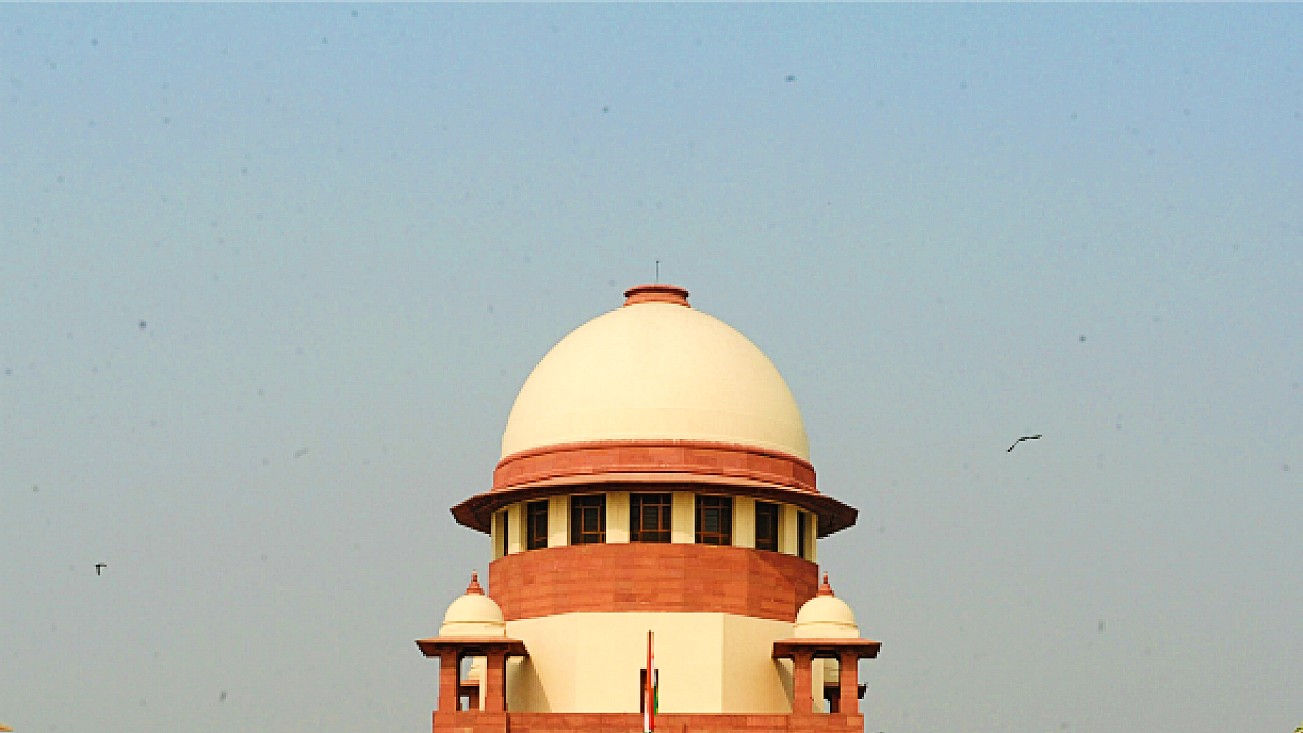InArbitration Petition No. 43 of 2022 -SC- Supreme Court strikes down pre-deposit clause in arbitration agreement between Lombardi Engineering Limited & Uttarakhand Vidyut Nigam Limited, upholding constitutionality of ADR & ensuring cost-effective dispute resolution
Chief Justice Dhananjaya Y. Chandrachud, Justice J.B. Pardiwala & Justice Manoj Misra [06-11-2023]

Read Order: Lombardi Engineering Limited V. Uttarakhand Jal Vidyut Nigam Limited
Chahat Varma
New Delhi, November 7, 2023: In a landmark ruling,the Supreme Court has struck down a pre-deposit clause in an arbitration agreement, ruling that it was unconstitutional and hindered the effectiveness of alternate dispute resolution (ADR).
In the said case, the petitioner, Lombardi Engineering Limited, a design consultancy firm based in Switzerland, entered into a contract with Uttarakhand Project Development and Construction Corporation Limited (UPDCC) to provide consultancy services for a hydroelectric project. Subsequently, the project was transferred to Uttarakhand Vidyut Nigam Limited, the respondent, a corporation owned by the Government of Uttarakhand, through a tripartite agreement. Disputes arose between the parties, leading the petitioner to issue a notice of arbitration to the respondent, calling for the appointment of an arbitrator as per the arbitration clause in the contract. However, the respondent responded by terminating the contract, alleging non-compliance with work and contractual obligations. The arbitration clause in the General Conditions of Contract (GCC) was under scrutiny, and the petitioner sought the appointment of an arbitrator to resolve their claims.
The core of the dispute revolved around the validity and enforceability of the arbitration clause, specifically concerning the stipulation that the petitioner must deposit 7% of the arbitration claim as security.
A three-judge bench of Chief Justice Dhananjaya Y. Chandrachud, Justice J.B. Pardiwala and Justice Manoj Misra, determined that Clauses 3 and 4, which pertained to security deposits for performance and their refund, had no direct connection with the 7% pre-deposit requirement specified in Clause 55 of the GCC. The vague and ambiguous nature of the 7% pre-deposit condition made it more susceptible to arbitrariness, thereby violating Article 14 of the Constitution.
The bench stated that for an arbitration clause to be legally binding, it must align with the ‘operation of law’, which includes the fundamental legal principles outlined in the Constitution. The rule of law is supreme and constitutes a part of the basic legal framework. In this context, the argument put forth by the respondent, suggesting that the petitioner's initial consent to the pre-deposit clause at the time of agreement execution prevents them from later asserting, in a Section 11(6) petition, that the clause is arbitrary and violates Article 14 of the Constitution, was deemed without merit.
“It is a settled position of law that there can be no consent against the law and there can be no waiver of fundamental rights,” asserted the court.
Furthermore, the bench referred to the impartiality and independence of arbitrators.Citing the case of IOC v. Raja Transport Pvt. Ltd. [LQ/SC/2009/1728], the bench noted that in situations where circumstances create reasonable doubts about the independence and impartiality of the nominated arbitrator, or when other factors justify the appointment of an independent arbitrator, the Chief Justice or their designate may, while providing reasons, set aside the designated arbitrator and appoint an alternative arbitrator.
The bench highlighted that the primary objective behind amending Section 12 of the Arbitration and Conciliation Act, 1996, as per the recommendation of the Law Commission, and the spirit in which it was amended by the Amendment Act, 2015, was to ensure the neutrality of arbitrators.
The bench also pointed out that even before the amendment of Section 12, there were numerous judgments by the Court where arbitrators were appointed, disregarding the agreed arbitration clause in specific contingencies.
Dwelling on the concept of unconscionability, the court cited a Supreme Court of Canada case, Uber Technologies v. Heller, where a pre-condition demanding high fees for arbitration was deemed unconscionable and unenforceable. The court stressed the importance of cost-effectiveness and accessibility in arbitration, highlighting that when arbitration becomes impractical due to associated costs, it ceases to serve as an effective dispute resolution mechanism.
The bench also referred to the case of Patterson v. ITT Consumer Financial Corporation, where the Court of Appeal of California considered whether requiring claimants to pay filing and hearing fees for resolving a matter could be deemed unconscionable. The Court of Appeals in that case found such a condition to be ‘incomprehensible’ and discouraging to borrowers in pursuing their claims.
Based on these observations, the Court concluded that the two conditions in Clause 55 of GCC, requiring a 7% deposit of the total claim amount and the appointment of a sole arbitrator by the Principal Secretary (Irrigation), should be disregarded. As a result, the court appointed Mr. V.K. Bist, the Former Chief Justice of the High Court of Sikkim, as the sole arbitrator in the case.
Sign up for our weekly newsletter to stay up to date on our product, events featured blog, special offer and all of the exciting things that take place here at Legitquest.




Add a Comment